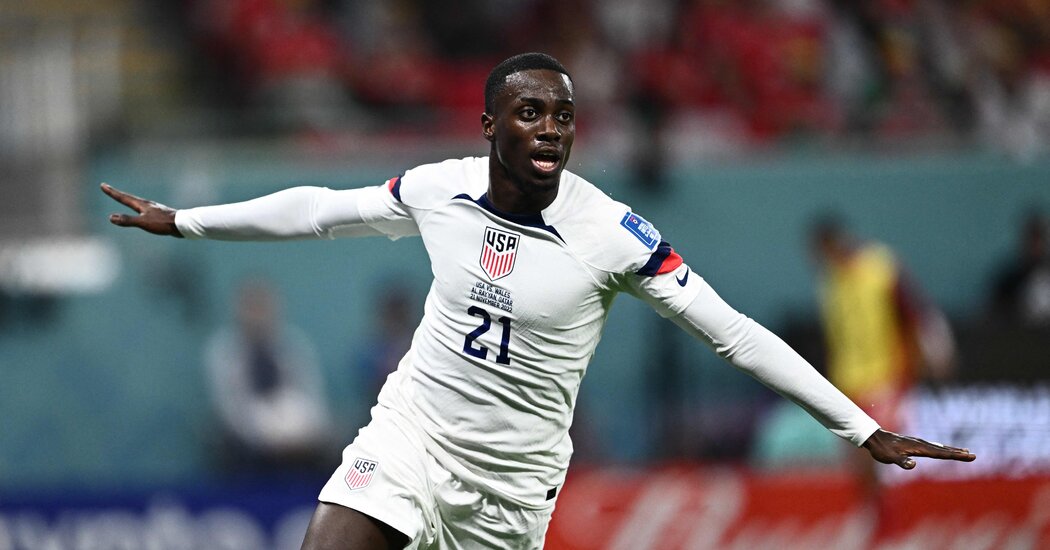
The chorus of the song comes crashing down in an irresistible wave. You may not have any clue what the words mean, but that’s OK. Neither do many of the people singing it.
The name of the tune is “Yma o Hyd.” It was released in 1983 by Dafydd Iwan, a Welsh nationalist folk singer. Its title translates to “Still Here.” And now, everywhere the Welsh soccer team goes, it seems to follow.
“I don’t know every single word because I don’t speak fluently in Welsh,” said Gareth Bale, the captain of the team, which often plays the song in its locker room and on the bus before games and will be serenaded with it by its fans today in Al Rayyan. “The song is starting to become our anthem, behind the national anthem — one that everybody loves to sing.
“It’s very catchy. It means something to us all and engages the players with the fans. It’s been a big hit.”
The song’s path to jock jam status was an unlikely one. It has gradually grown in popularity over the years after being adopted by sports clubs and pro-independence groups. One such campaign for Welsh independence pushed the song to No. 1 on the United Kingdom’s iTunes chart in 2020.
Earlier this year, Iwan was asked by the Welsh team to sing the song on the field before two crucial qualifying matches. Videos of those performances, with fans belting out the words in unison, circulated around the globe. The song reached No. 1 on the iTunes chart again soon after, ahead of songs from Kate Bush, Harry Styles and Lady Gaga.
“It’s difficult for me to explain the appeal, but obviously there is a patriotic appeal from the Welsh point of view,” Iwan said. (The defiant and proud Welsh chorus translates to “We’re still here.”) “But also it’s quite a stirring song, an anthemic song. A lot of people who’ve never heard it before, when they hear it for the first time in the stadium, they’re quite taken by it.”
Moments after Wales qualified for the World Cup in June with a win over Ukraine in Cardiff, the entire team — with Bale front and center — sang the song together again with Iwan on the field. Iwan, who has traveled with the team to Qatar for the World Cup, said the sight of a player of Bale’s stature singing a song in Welsh at the top of his lungs was invaluable for promoting Welsh identity. He praised the Welsh Football Association for more conspicuously integrating elements of the nation’s culture and language “into the whole ethos of the team” in recent years.
“My support for the Welsh football team is an extension of my Welshness. They are all intertwined,” Iwan said.
Iwan, like many of his compatriots, went out that night in June to celebrate the team’s World Cup berth. The city, he recalled, was rocking with joy.
“The first pub I walked into, everybody stood up and cheered as if I had scored the winning goal,” he said, laughing.
